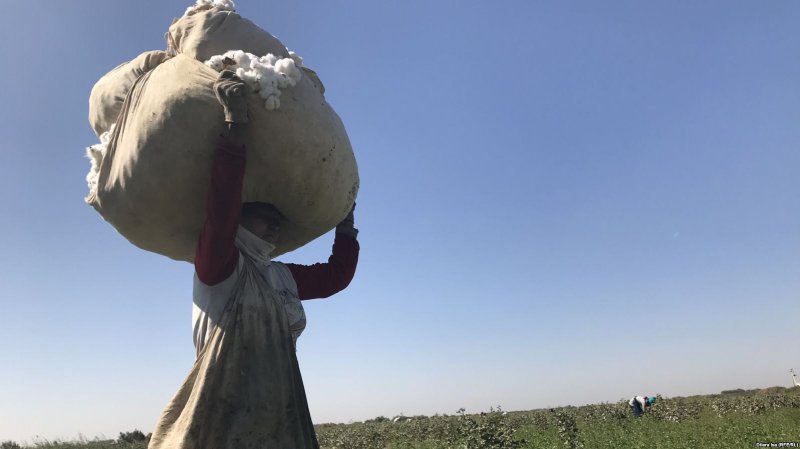Countries
Solidarity campaigns
Despite Commitment and Efforts, Systematic Forced Labor in Uzbekistan’s Cotton Fields was Present During the 2018 Harvest

Washington, DCUzbekistan’s 2018 cotton harvest, which concluded in all regions of the country the first week of December, showcased the enormous challenges in uprooting the country’s deeply entrenched forced labor system. Driven by a commitment to reform at the highest levels of the government, there is a significant transition underway, which is reflected in some encouraging signs of progress. But despite serious efforts by the central government to curtail forced labor for some citizens, key root causes remained in place, driving officials at both the local and national level to force citizens into the fields again.
The Cotton Campaign and coalition partners’ preliminary 2018 harvest findings show that large-scale, government-implemented forced labor occurred during the recent cotton picking season, even as the government increased commitments to ending the practice.
“Our monitors found that regional and district officials ordered state organizations and businesses to send employees or pay for replacement workers to pick cotton and sign statements stating they were working voluntarily,” said Umida Niyazova, Director of the Uzbek-German Forum for Human Rights (UGF). “Some of the forced pickers were from republic-level law enforcement and military agencies, which could not have sent employees without authorization from the central government.”
For example, UGF monitors obtained an order, signed by the deputy governor of Namangan region, directing 82 state organizations including banks, utility companies, the youth union, tax authority, department of tourism, and regional labor union, to deliver 760 metric tons of cotton by November 27, 2018. The order specifies the number of employees of each organization and the amount of cotton each organization should deliver.
UGF’s independent monitors also obtained documents that indicate approximately 30 percent of employees of state-owned enterprises were assigned to picking brigades, often meaning days away from their families and their chosen field of work. The Uzbek Metallurgical Plant ordered the mobilization of 3,200 workers to pick cotton, 36 percent of the plant’s workforce, according to a document obtained by UGF, dated September 19, 2018. Government officials also turned to the military to meet quotas, mobilizing soldiers in several districts to pick cotton, especially late in the season when voluntary picking had dropped off. For example, in Akaltynsky district of Syrdarya region, 10,000 soldiers picked cotton until December 5, 2018.
During the 2018 cotton harvest, a team of independent monitors found:
● There were some reports of punishing local officials for orchestrating forced labor. However, for the 2018 harvest, the central government continued its system of imposing cotton production quotas on regional and local officials. As a result, more than 100 such officials were punished for “deficiencies in organizing the cotton harvest,” a term used for failing to fulfill cotton quotas.
● The government increased wages paid to pickers resulting in more voluntary pickers, especially early in the season when cotton is more plentiful and earning potential is high. But evidence demonstrated that the number of voluntary pickers dropped as available cotton decreased and weather worsened, which induced officials to resort to forced labor to meet their quotas and avoid punishment.
● Numerous pickers worked voluntarily, but many voluntary pickers preferred to be hired as replacement pickers by those forced to pick or pay so they could earn replacement fees in addition to wages for cotton picked, demonstrating that national picking wages set by the government are still too low.
● Health and education employees were not mobilized en masse, though some were forced to work at the end of the harvest. Nonetheless, most major government enterprises and agencies, including factories, grain mills, utility companies, banks, law enforcement, and government services, required their employees to pick cotton or pay for replacement pickers from the beginning of the harvest. Thousands of these employees were sent to supply pickers to low population regions where they lived in field camps, public buildings, or train cars.
“Although we have seen encouraging areas of progress in this harvest, it is premature to declare success in dismantling a system of production relying on massive forced labor that has been in place for decades,” said Bennett Freeman, former Deputy Assistant Secretary of State, Bureau of Democracy, Human Rights, and Labor and Co-founder of the Cotton Campaign. “There is indeed a significant transition underway, but it will take several more years to end systemic forced labor and to implement critical structural reforms, such as ending the quota system, establishing incentives for employing only voluntary labor and enforcing accountability for officials who use forced labor. We look to the Uzbek government and its international partners to sustain and accelerate the hard work that will be necessary to achieve historic reform.”
The Cotton Campaign has long raised concerns that using public sector employees for forced labor has disastrous consequences for public services. In November, Ozodlik reported that seven children received the wrong vaccination with devastating health consequences, because the nurse in charge was picking cotton.
“Uzbekistan should be evaluated by actual change on the ground but forced labor will not be eliminated as long as the quota system for both cotton and field labor remains intact,” said Judy Gearhart, Executive Director of the International Labor Rights Forum, a founding member of the Cotton Campaign. “Currently Uzbekistan’s agricultural sector lacks a system of normal labor relations. There were cases in 2018 harvest when farmers were physically abused for failure to deliver on government-ordered production quotas.”
# # #
For more information, please contact:
● In Berlin, for Uzbek-German Forum for Human Rights, Umida Niyazova, +49-176- 3120-2474, umida.niyazova@uzbekgermanforum.org (English, German, Russian, Uzbek).
For more reporting by the Uzbek-German Forum on cotton and forced labor in Uzbekistan, see: http://uzbekgermanforum.org/
● In the United States, for the Cotton Campaign, Kirill Boychenko, +1-907-885-8691, cottoncampaigncoordinator@gmail.com (English, Russian).
For more information on the Cotton Campaign, see: www.cottoncampaign.org
